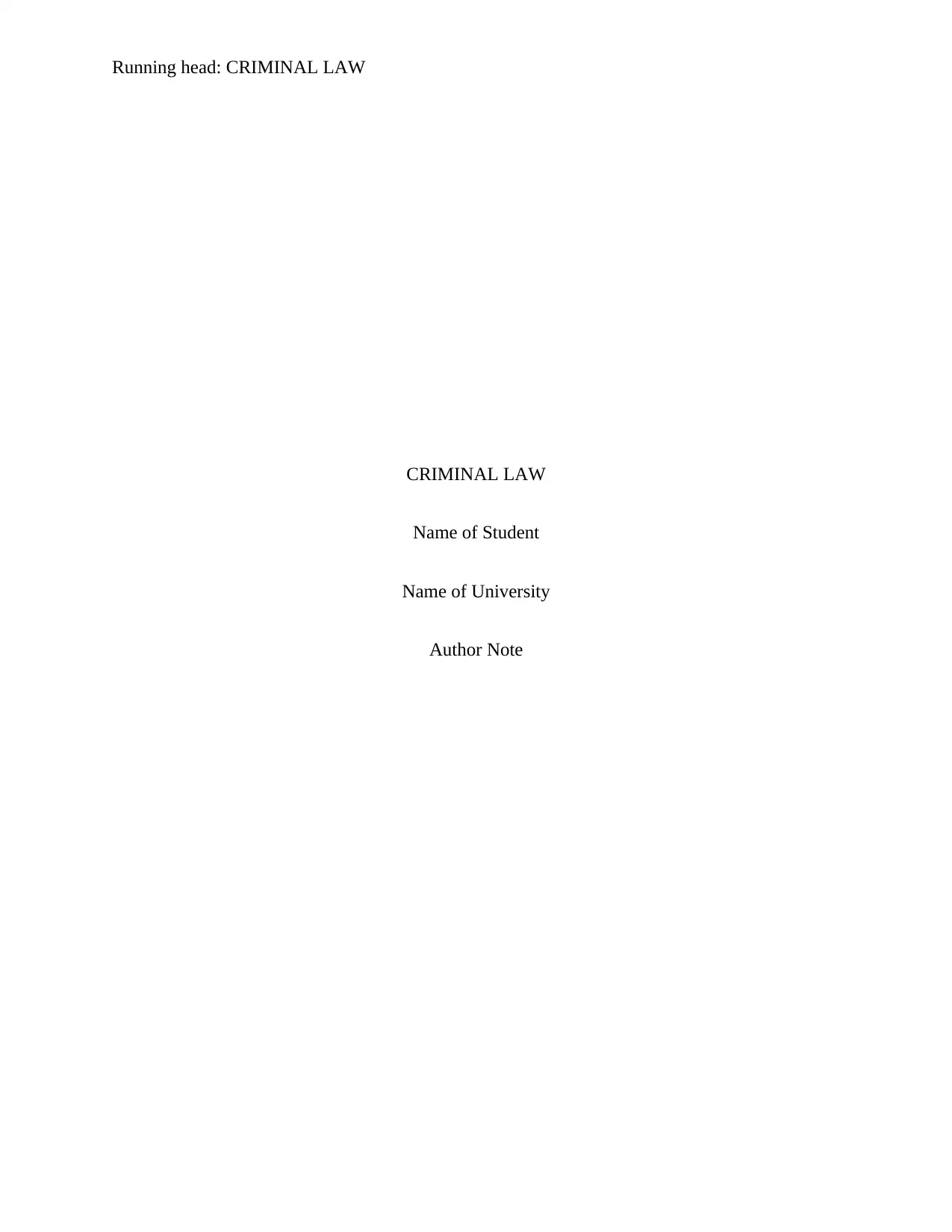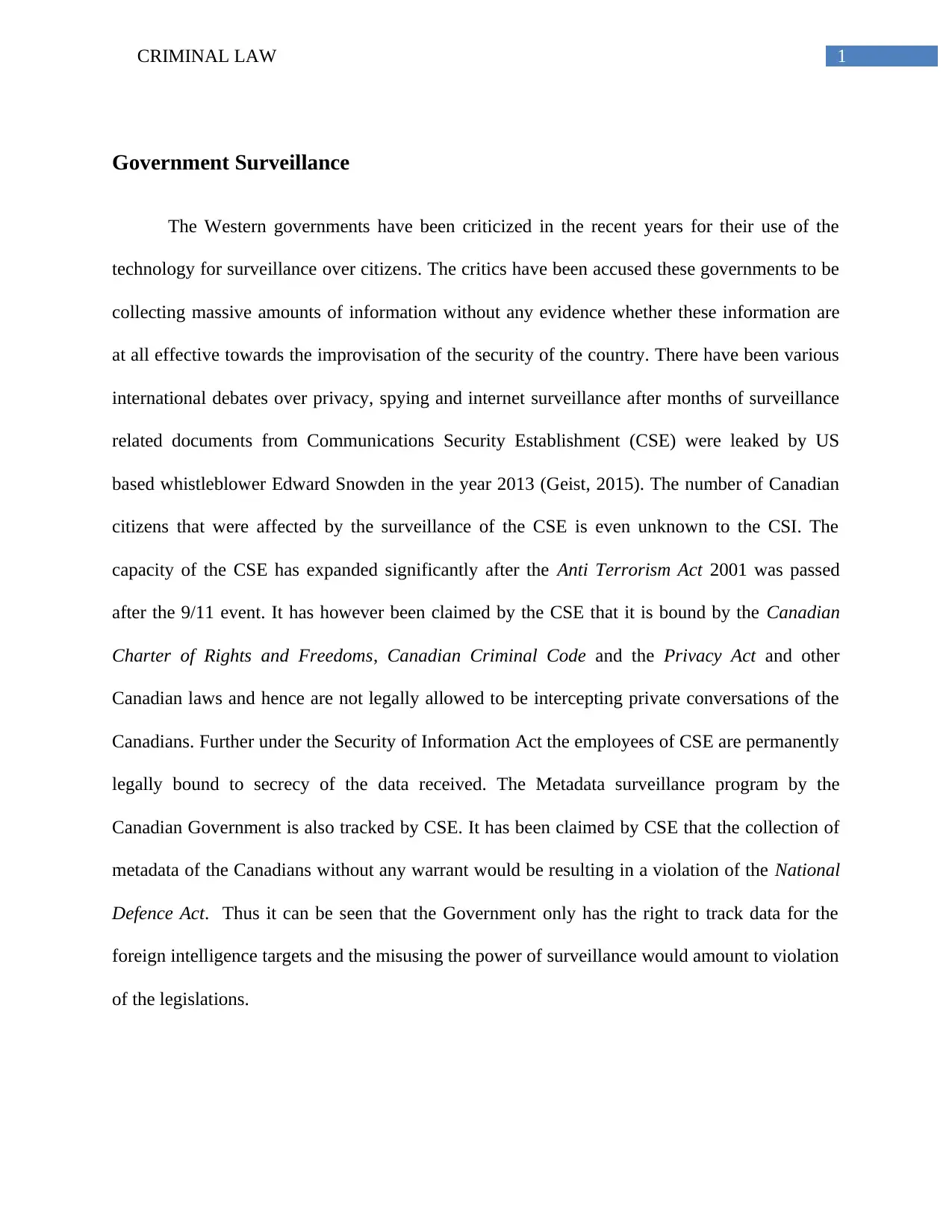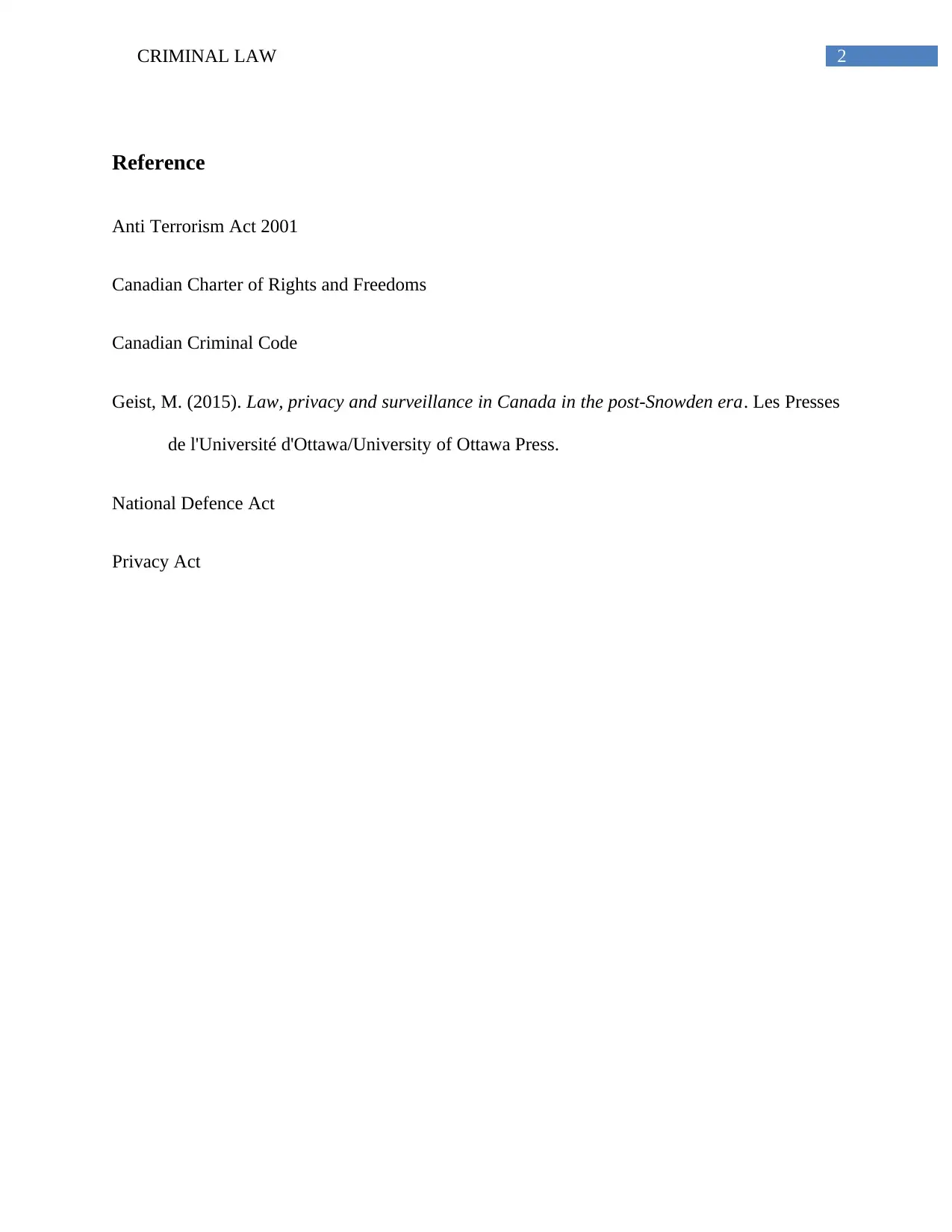Criminal Law: Government Surveillance, Privacy, and Canadian Law
VerifiedAdded on 2022/11/25
|3
|355
|60
Report
AI Summary
This report examines the complex issues surrounding government surveillance and privacy within the context of Canadian criminal law. It highlights the controversies surrounding surveillance practices, particularly after the 9/11 attacks and the revelations from Edward Snowden. The report discusses the role of the Communications Security Establishment (CSE) and the legal frameworks governing its activities, including the Anti-Terrorism Act, the Canadian Charter of Rights and Freedoms, and the Privacy Act. It explores the limitations placed on the CSE, such as the prohibition against intercepting private conversations of Canadians and the restrictions on metadata surveillance without a warrant. The report concludes by emphasizing that government surveillance should be limited to foreign intelligence targets and the misuse of surveillance powers would amount to violation of the legislations.
1 out of 3










![[object Object]](/_next/static/media/star-bottom.7253800d.svg)